“Thank you to all the participants, it was a great opportunity to listen to all perspectives, patient organizations, tech industry, pharma, hospitals, academics, regulators, researchers, etc. the clarity in identifying the key challenges empowers all of us in finding the best solutions for the benefit of the overall healthcare sector. Thanks for your generosity!”
There is a lot of talk about AI and Healthcare these days. This was a rare opportunity to hear about success stories and tangible results! But also an honest discussion of what is really needed to leverage AI for curing diseases and improving patient health. Warm congratulations to Stefano, Andrea, Sara and the team for bringing this together and a big thank you to Uthra Sundaram for her clear vision on where the thinking should focus.”
“Adding my thanks and congratulations to the HDI Council, StratejAI and Takeda for hosting and organising the event. It was rich in content, expert stakeholders and inspiring conversations leading to concrete use cases and opportunities to super charge the realisation of the EHDS in a number of concrete cases that will help diagnose patients faster and optimise care for better outcomes.”
Several inspiring use cases on the use of data and AI for healthcare were presented along with a general overview of how to derive value from data and key elements of the European Health Data Space framework from different stakeholders’ point of view. The event included keynotes and two multidisciplinary panel discussions with international experts coming from the academia, clinical and research, regulatory, industrial, and governmental sectors.
In welcoming the event, Uthra Sundaram (EVP, Head of Global Product Launch and Strategy, Global Portfolio Division, Takeda) proposed a clear vision on what the discussion should focus on suggesting that all stakeholders at the table have to bring their “A-game” to achieve successful outcomes and effectively leverage the new tools we have at our disposable, data and AI. Following, Gabriel Lopez Serrano (Government Affairs Director, Microsoft) and Stefano Sedola (Co-founder and partner, Stratejai) highlighted the importance of having these discussions and promoters like the Healthcare Data Innovation Council bringing together the stakeholders working towards the same goal of improving healthcare systems.
Following the introduction, Andrea Pescino (Co-founder and partner, Stratejai) presented the objectives and takeaways from the HDI Council’s research. Central data platforms are engines for extracting information that can ingest diverse data and are able to cross-correlate information. Foundational AI models are able to analyse both unstructured data and structured data, increasing the data sources and the potential of AI to derive actionable insights from the analysis. Andrea also touched upon the urgent need of a cultural transformation to empower stakeholders to use data and AI.
Elena Bonfiglioli (GM, Global Business Leader, Healthcare Pharma and Life Sciences, Microsoft) focused on the importance of multimodal health data services to empower precision health and data altruism. Multimodality consists in bringing together R&D and care delivery establishing a feedback loop to make research and application more precise thanks to the massive availability of data coming not only from Electronic Health Records (EHR) but also from daily activities.
Consolidating the concepts described by Andrea and Elena, Antonello Scalmato (Co-founder and Director of Cloud Services and AI, Ermit) presented AIDA, the research project aiming at developing an Artificially Intelligent Diagnostic Assistant for gastric inflammation to prevent and improve the management of gastric cancer. Antonello also conducted a live demo on the chatbot that has been developed for the AIDA project that is parameterized to give answers only related to H.Pylori, gastric cancer and the AIDA research.
The clinical outcomes and objectives of AIDA were highlighted during the subsequent panel discussion on deriving value from health data by Tania Fleitas Kanonnikoff (MD and Scientific Researcher, Medical oncology department, INCLIVA), coordinator of the AIDA project, who talked about the relevance of AI algorithms and tools that can aid the work of clinicians and ease the experience of patients. During the panel, Peter Speyer (Head of Analytics, Data & AI at the Novartis Foundation) touched upon several initiatives aimed at improving population health carried out by NF, like CARDIO4Cities and AI4HealthyCities. Continuing the discussion, Meni Styliadou shared the importance of data accessibility in order for AI to deliver expected results, and Elena Bonfiglioli launched a call for action suggesting that society should start thinking about activating the value of data.
The event continued with the presentation of two use cases. Sarah Des Rosiers (Director of Health Equity, Novartis Foundation) showcased the work of the first global data collaborative for cardiovascular diseases, AI4BetterHearts. The collaborative intends to pool data from different sources such as hospitals and primary care, to support decision making, advance preventive and predictive health. And Kirill Veselkov (Assistant professor in Computational Medicine, Imperial College London) presented the mission of his research team and the project Hyperfoods that translates vast amounts of omics data into actionable insights and efficient strategies to identify photochemically-enriched foods to be used in personalised therapies for cancer patients.
The second and last panel of the event, focused on regulatory aspects and in particular on the EHDS framework and the AI act. YIannos Tolias (Legal Officer European Commission’s DG SANTE) highlighted the impact of the interrelation between the two EU emerging regulations on developers, manufacturers and data holders or researcher. Yiannos touched upon the opportunity for organisations to access data through EHDS to conduct experiments and bring the idea to market. Ricard Martinez (Chair of Privacy and Digital Transformation, University of Valencia) focused on the fragmentation of regulations and the need for more clarity and alignment, especially in the language, to make sure that the regulations are not hindering advancements and innovation. Paolo Parini (Professor, Senior Consultant, Director of Research & Development, Education and Innovation, Karolinska Institutet and Karolinska University Hospital) brought the hospitals’ perspective, highlighting some of the barriers to the EHDS implementation, like the need to improve data collection systems and especially interoperability, to be able to share and derive the value from data. Lastly, Julian Isla (Co-founder, Foundation 29) representing the patients reminded the reason why sharing data is important and the benefits for patients and non-patients that can be derived from combining data together.
Hybrid event
Zurich Takeda Offices – Thurgauerstrasse 130, 8152 Opfikon, Switzerland
The conference will take place in a hybrid format. When registering you can select the online or in-person ticket.
Agenda
| Time | Item |
|---|---|
|
8:30 – 9:00
|
Registration of participants |
|
9:00 – 9:15
|
Welcoming remarks
Uthra Sundaram, EVP, Head of Global Product Launch and Strategy, Global Portfolio Division, Takeda
Gabriel Lopez Serrano, Government Affairs Director, Microsoft Stefano Sedola, Co-founder and partner, Stratejai |
|
09:15 – 09:35
|
Healthcare Data Innovation Council: discussing the future of healthcare
Andrea Pescino, Co-founder and partner, Stratejai
|
|
09:35 – 09:55
|
Evolution of healthcare systems through AI
Elena Bonfiglioli, GM, Global Business Leader, Healthcare Pharma and Life Sciences, Microsoft
|
| 09:55 – 10:15 |
The potential of generative AI in medicine and healthcare (with demo)
Antonello Scalmato, Co-founder and Director of Cloud Services and AI, Ermit
|
| 10:15 – 11:05 | Deriving value from health data through AI
Moderator: Stefano Sedola, Co-founder and partner, Stratejai |
| 11:05 – 11:20 | Coffee break |
| 11:20 – 11:35 | AI4BH, data collaborative for cardiovascular disease Sarah Des Rosiers, Director of Health Equity, Novartis Foundation |
| 11:35 – 11:50 |
DreamLab, a story of participative health research
Kirill Veselkov, Assistant professor in Computational Medicine, Imperial College London
|
| 11:50 – 12:40 |
Data spaces: a new framework for data sharing? Practical and regulatory implications
Moderator: Meni Styliadou, VP Health Data Partnerships, Data Science Institute, Takeda & H2O Ricard Martinez, Chair of Privacy and Digital Transformation, University of Valencia Paolo Parini, Professor, Senior Consultant, Director of Research & Development, Education and Innovation, Karolinska Institutet and Karolinska University Hospital Ray Pinto, Senior Director for Digital Transformation Policy, Digital Europe (online) Julian Isla, Co-founder, Foundation 29 |
| 12:40 – 12:55 | Conclusions Stefano Sedola, Co-founder and partner, Stratejai |
| 13:00 – 14:00 | Lunch |
Speakers
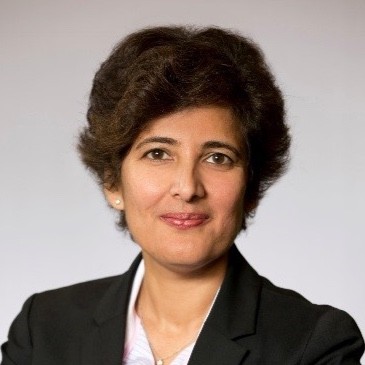
Uthra Sundaram
EVP, Head of Global Product Launch and Strategy, Global Portfolio Division, Takeda

Meni Styliadou
VP Distinguished Fellow, Data Science Institute, Takeda
Founder & Co-Lead, H2O
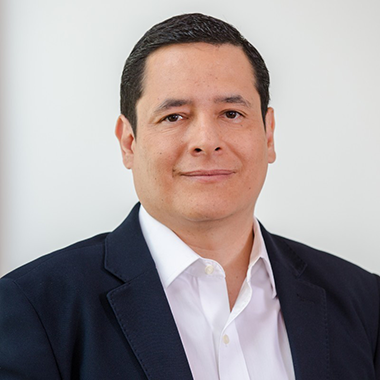
Gabriel Lopez Serrano
Government Affairs Director, Microsoft

Stefano Sedola
Partner and founder, StratejAI
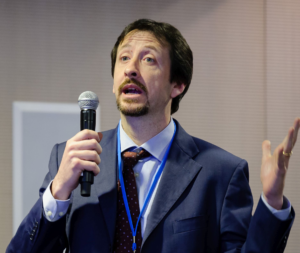
Andrea Pescino
Partner and founder, StratejAI
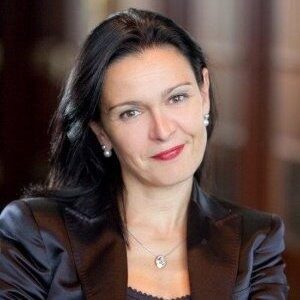
Elena Bonfiglioli
GM, Global Business Leader, Healthcare Pharma and Life Sciences, Microsoft
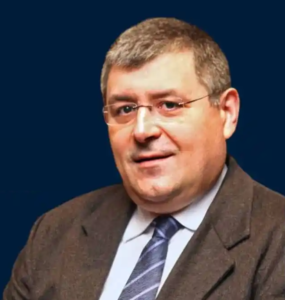
Ricard Martinez
Director of the Chair of Privacy and Digital Transformation, University of Valencia

Sarah des Rosiers
Director of Health Equity, Novartis Foundation

Paolo Parini
Senior Consultant and Director of Research & Development, Education and Innovation at Karolinska University Hospital
Professor at Karolinska Institutet
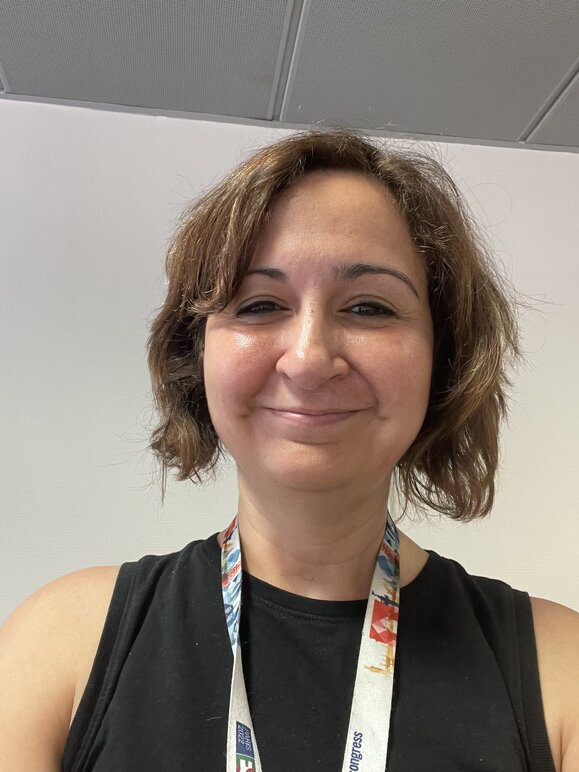
Tania Fleitas Kanonnikoff
MD, Medical Oncology Department, INCLIVA
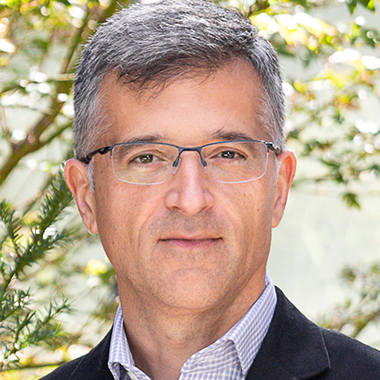
Julian Isla
Co-founder, Foundation 29
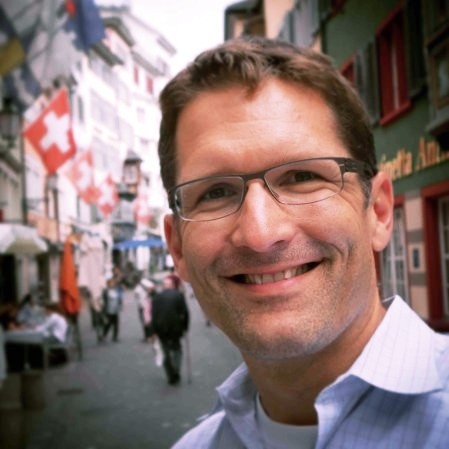
Peter Seyer
Head of Analytics, Data & AI at the Novartis Foundation

Antonello Scalmato
Co-founder and Director of Cloud Services and AI, Ermit
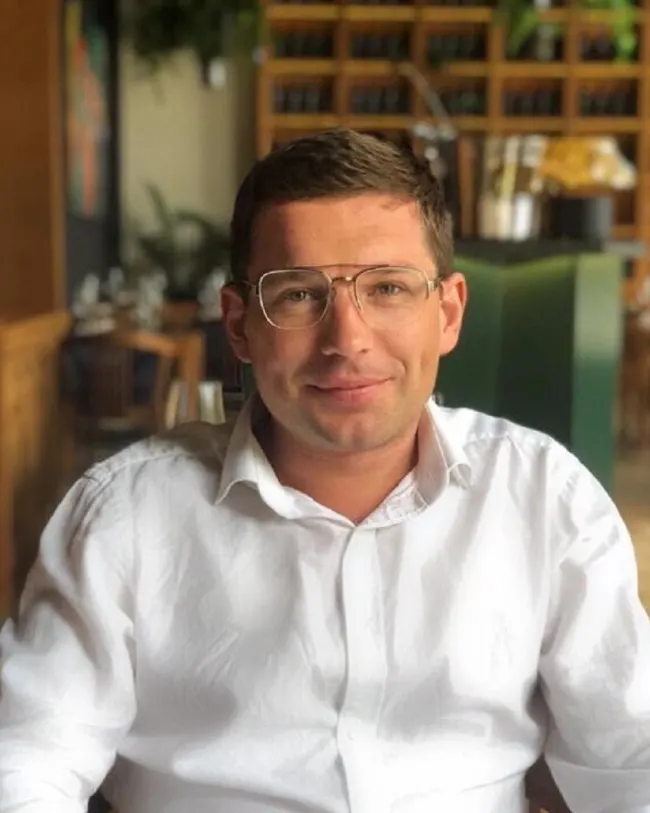
Kirill Veselkov
Assistant Professor in Computational Medicine, Imperial College London
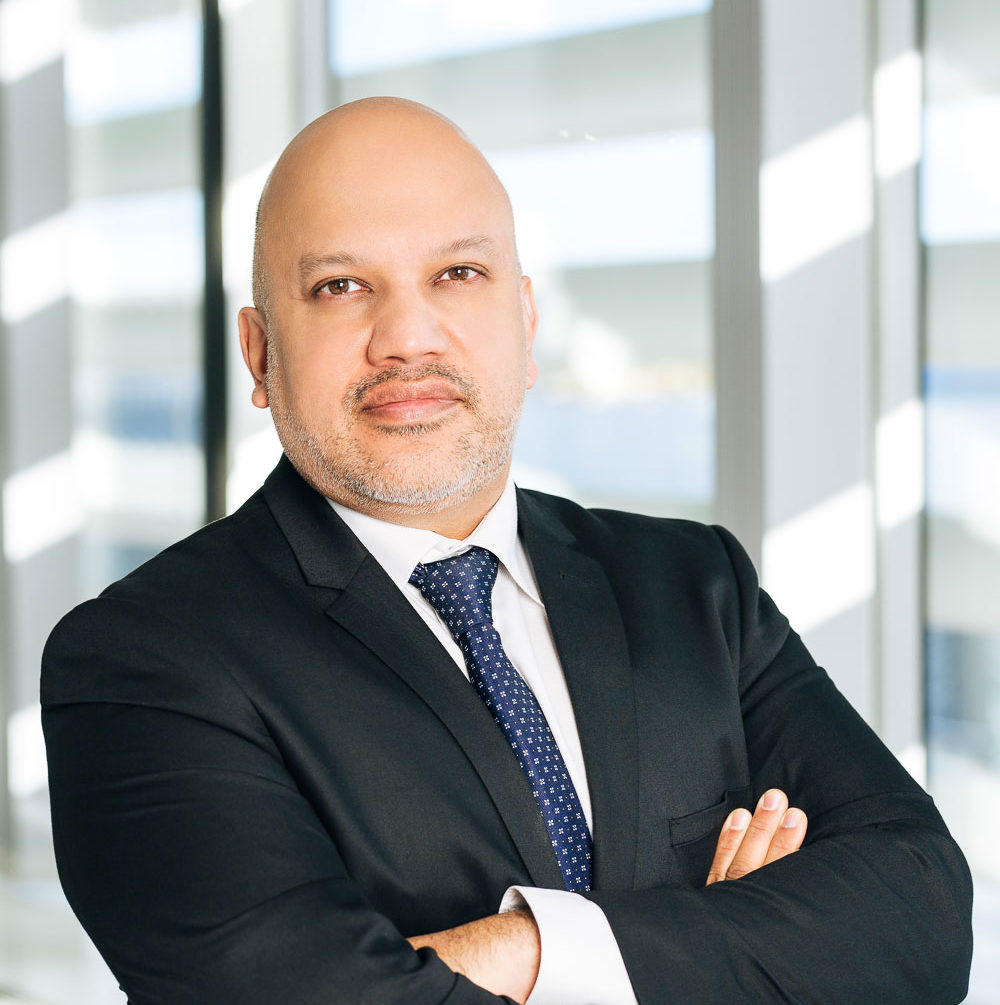
Ray Pinto
Senior Director for Digital Transformation Policy, Digital Europe

Yiannos Tolias
Legal Officer European Commission’s DG SANTE
Biographies
Uthra Sundaram
Uthra Sundaram was appointed head of Global Product & Launch Strategy (GPLS) in June 2020, where she leads that organization’s focus on realizing the promise of our pipeline, driving global brand growth, and becoming a center of excellence within Takeda and in the industry for both asset strategy and launch success. To this role she brings a passion for building connections between commercial and R&D, as well as a broad global background in the U.S., Europe and Asia, which has given her a deep understanding of how to operate successfully within diverse markets, cultures and health systems. Uthra holds a degree in Electronics and Communication Engineering, a post-graduate diploma in Management, and an MBA from Yale School of Management.
Meni Styliadou
Meni is the Founder and Project Leader of the H2O, a public private partnership among 23 organisations funded through the Innovative Medicines Initiative (IMI). The goal of the H2O is to set up independent entities in 4 countries that equip patients with digital tools to monitor their outcomes in a standardised manner while being in control of their data.
Meni joined Takeda on the 1st of October 2015 as VP Public Policy and Government Affairs for Europe & Canada (EUCAN). Her focus has been to help Takeda take advantage of public policy trends and create win-win business models for society and the company. In this context, Meni has been pioneering the creation of a PPP between the healthcare industry, healthcare providers and public sector to leverage digital technologies in order to create transparency of health outcomes and improve efficiencies in healthcare.
Prior to joining Takeda, Meni worked for 9 years for Novartis in several roles in public policy and ethical leadership. Prior to that, Meni held a number of international positions in both the public and private sectors focusing on how to accelerate broadband in Europe and how to create a public policy environment that would allow Europe to enter successfully into the digital era.
Meni started her career in the European Commission in 1991 as a legal expert focusing on telecom law and policy. She studied law in Greece and Belgium and she specialised in anti-trust law.
Gabriel Lopez Serrano
Gabriel Lopez Serrano is Government Affairs Director for Microsoft. His career spans academia, start-ups and top tech companies. He started as General Counsel for a NY based start-up telecom Company (RSL Communications). He then joined AT&T Corp. as Regulatory Affairs manager, specialized in international transactions and regulation for the Americas. Afterwards he worked at Nokia Corp., as Senior Legal Counsel and Government affairs Director for western Europe based in Madrid. At Microsoft, Gabriel is the Government Affairs Director for Spain and collaborates with several private, public and academic institutions such as the Universitat de Valencia, National Trade Associations (Ametic), Think Tanks (Real Instituto Elcano and Fundación FIDE) and Bar Associations (Ilustre Colegio de Abogados de Madrid). He specializes in the design of national and international public policies relative to the responsible use of technology and has authored several articles regarding the use of Artificial Intelligence in the design of public policies, cybersecurity, transparency, accessibility and sustainability. Gabriel is a licensed attorney in Mexico and Spain, holds a bachelor’s degree and a Masters in Law from the Mexican Institute of Technology, has postgraduate studies at the Stanford University (California, USA) Instituto de Empresa (Madrid, Spain), European Academy of Law (Trier, Germany), Georgetown University (Washington, USA) and the Mexican Institute of Technology (Mexico City, Mexico). https://www.linkedin.com/in/glopezse/
Stefano Sedola
More than 20 years strategic consulting for major multilateral donors (e.g European Commission, UN). As chief technical advisor for the UN and business development director for international consulting firms, he facilitated and succeeded structural and policy reforms in several countries across the world (e.g. Eastern Europe, North Africa, Middle East, Africa, Asia). He is currently, as partner of Stratejai, advising several organisations and governments in drafting and implementing their AI policies and data driven journeys. Stefano is also a member of GAIA X healthcare working group.
Andrea Pescino
More than 20 years’ experience in leading multidisciplinary teams in digital transformation projects and AI adoption in private, public and NGOs sectors. Participated in several projects in the field of Artificial Intelligence in a prominent leading role (e.g. entrepreneur, Team leader, advisor, researcher)More than 20 years practical experience in setting up the technical infrastructure for the development and use of AI systems focusing on cognitive computing, data analytics (including sentiment analysis), Internet of things, Smart Working, Big Data Analytics and Cloud Transformation.Wrote several articles and papers in the field of AI (more on the blog- http://andreapescino.com). Andrea is also a member of GAIA X healthcare working group.
Elena Bonfiglioli
As leader for Microsoft Health and Life Sciences business across the EMEA region, Elena Bonfiglioli is responsible for partnerships, commercial go-to-market strategy and execution across public health organizations, payors and pharma. A signature outcome of her work – together with a core team across engineering and research – was the design and launch of the AI partnership with Novartis in 2019 and the AI for Leprosy initiative with Novartis Foundation. Bonfiglioli co-chaired the Health Cloud Council for Microsoft and partners from 2015-2019. She led the initiative on secondary use of health data and championed the work on data collaboratives, leading to the creation of the first global data collaborative in cardiovascular population health. Bonfiglioli has been working in the health sector for 15+ years, first in health policy at EU level and then as regional business leader in the global healthcare team. In July 2017, Bonfiglioli was elected to the HIMSS Europe Governing Council. In 2020 she was nominated one of the top 50 AI Innovators by Intelligent Health.
Ricard Martinez Martinez
Ricard Martinez Martinez is an associate Professor in the Department of Constitutional Law and Political Science at the University of Valencia. There he also acts as Academic Delegate of the Rectorate on Data Protection, and head of professorship of Privacy and Digital Transformation. He is part of the Work Group for Digital Rights of Citizens organised by the Ministry of Energy, Tourism and Digital Agenda. He coordinates another Work Group established by the Spanish Conference of University Rectors to bolster the new Data Protection Legislation. Head of Area of Transparency and Open Government (Diputación de Valencia).
Sarah des Rosiers
In her role as Director of Health Equity at the Novartis Foundation, Sarah manages strategic public-private partnerships to advance the response against cardiovascular diseases worldwide, leveraging the power of data and digital for population health impact. She leads a hypertension control initiative in Dakar in collaboration with the Ministry of Health of Senegal and IntraHealth International, and oversees the Data Collaborative AI4BetterHearts, a partnership with Microsoft and Accenture.
Prior to joining Novartis, Sarah worked as a management consultant for PwC where she advised major pharmaceutical companies on their strategy and operations, market access and pricing strategies and digital transformations. She worked on several assignments with global health organizations (WHO, GAVI, Global Fund) on topics of performance management, grant monitoring and impact evaluation.
Sarah started her career in global health and held roles at WHO, UNAIDS and CHAI in the areas of access to medicines, health systems strengthening and monitoring & evaluation. Through these roles she worked with health authorities in Kenya, Tanzania, Cameroon, Haiti and Thailand.
Sarah holds an MSc in International Health Policy & Economics (LSE) and an MBA (University of St. Gallen, Switzerland). She is Canadian of Haitian background.
Paolo Parini
Paolo Parini is a Professor of Clinical Chemistry and studies cardiometabolic diseases at the molecular level. He is also Coordinator at Cardio Metabolic Unit, CMU. CMU is a research constellation driving innovative and implementable research and education, closely integrated with specialized health care. In line with its translational approach, CMU is linked to the Department of Medicine, Huddinge and Department of Laboratory Medicine at Campus Flemingsberg.
Tania Fleitas Kanonnikoff
Tania Fleitas Kanonnikoff, is a Doctor in Medicine and Surgery from FCM-UNA (Paraguay), she was specialized in Medical Oncology at the Hospital Clínico y Universitario La Fe in Valencia and received her PhD from the Universidad Autónoma de Barcelona with honors. Since then (2011), she has worked as a medical oncologist and post-doctoral researcher at the Hospital Clínico Universitario de Valencia. Her clinical work focuses on the care of patients with digestive tumors and collaborates in the development of experimental therapy within clinical trials with a personalized medicine approach, and her research work focuses on translational research centered on the study of the microenvironment of gastric cancer. She is currently leading a national multicenter project funded by the Carlos III Health Institute focused on the study of biomarkers of sensitivity to immunotherapy in gastric cancer, she is the scientific coordinator of the European LEGACy Project, focused on the multi-omic characterization of gastric cancer in EU and LATAM cohorts as well as strategies at the 3 levels of prevention for gastric cancer, and she is the principal investigator of the AIDA project focused on the development of an artificial intelligence assistant for prevention strategies in gastric cancer. On the other hand, she leads the VERO-1 and VERO-2 projects with private funding, focused on the study of sporadic gastric tumors in young populations. To highlight her research experience, she did a Fellowship in the Adam Bass Laboratory, DFCI, Boston-Massachusetts for one year (2016) to carry out a project focused on the microenvironment of gastric cancer.
Julian Isla
Julian Isla is Resource Manager for Artificial Intelligence group in Microsoft Consulting Services. He is software engineer by training and has 28 years of experience working on international IT companies. He has experience helping customers on digital transformation and leveraging the capacity or artificial intelligence to move organizations into automation. He is also co-founder of Foundation 29, a NPO focused on how artificial intelligence can empower people to make decisions about their own health, based on the evidence provided by data and supported by automated interpretation systems.
Julian is also the Chief Scientific Officer of the European Dravet Syndrome Federation, an European organization of patients with Dravet Syndrome. Julian is the father of Sergio, a young boy thirteen years old who has Dravet Syndrome. Despite of not having a neuroscience or medical background he gained the skills to be member of the Orphan Drug Committee at European Medicines Agency (EMA) as patient representative. Julian is also part of the Therapeutic Advisory Group for Eurordis, the biggest organization of rare diseases in Europe. In Spain he is member of Ciberer (Spanish Network for research on rare diseases) scientific advisory group. Julian holds a great combination of skills combining technology, medicine, science, clinical processes, patient engagement and regulation.
Peter Speyer
Peter is Head of Analytics, Data & AI at the Novartis Foundation, accelerating the use of data and analytics to further the Foundation’s mission to improve population health and inequities. Peter co-founded Novartis’ transformational data42 program which enables the use of the company’s deep pre-clinical, clinical, and real world data to accelerate and improve drug R&D. Prior to his work at Novartis, Peter was Chief Data & Technology Officer at the Institute for Health Metrics and Evaluation (IHME) at the University of Washington in Seattle. He managed the data for the Global Burden of Disease (GBD) study and created IHME’s global public data catalog Global Health Data Exchange (GHDx) and innovative interactive data visualizations.
Antonello Scalmato
Antonello holds a doctoral degree in Robotics and Ambient Intelligence. He has worked for over 10 years in various fields of artificial intelligence, with a specialization in knowledge representation, and is the author of more than 20 articles on these research topics. He is one of the inventors of a patent related to Context Awareness in Smart Homes and is a co-inventor in one of Pillo Health’s patents related to the Robot and its functionalities. In recent years, he has become an expert in cloud-based service architecture. At Pillo Health, he served as the Director of Cloud and AI Services. He is currently one of the founding partners of Ermit, where he is responsible for the development of AI and Cloud-based systems.
Kirill Veselkov
Dr. Veselkov’s research group focuses on developing computational/AI methods that can make a difference in data-driven global health and disease. He has led the development of a series of field-changing data analytics frameworks to augment emerging molecular (“-omics”) profiling technologies into clinical decision support, and population health management. His group expertise combines the use of a diverse range of computational techniques from signal processing, imaging informatics, network-based machine learning, natural language processing and high-performance mobile computing for information extraction from heterogeneous biomedical datasets. In collaboration with Vodafone Foundation, Dr Veselkov is currently leading and managing DreamLab-DRUGS and CORONA-AI projects – one of the biggest citizen science projects with over 250K engaged users. The projects harness the idle processing power of tens of thousands of smartphones, network-based AI and large -omics data to hunt for drug-food combinations against cancer genomes and emerging COVID-19 disease. His translation interests are omics-driven precision medicine/nutrition, AI drug repositioning, and digital pathology. Dr Veselkov has received a World Economic Forum (WEF) Young Scientist Award, and served on the WEF Global Agenda Council on the Future of Computing. His research was featured by technology programs BBC Click, Sky Swipe, and numerous media outlets.
Ray Pinto
Ray joins DIGITALEUROPE with over 20 years of government affairs and communications experience in Brussels and across the EMEA region. Ray is responsible for the digital transformation strategy providing policy recommendations to government stakeholders on the disruption being caused to European industries including manufacturing, healthcare, transport, and financial technologies.
Ray leads the Digital Transformation Policy Group helping our members to advance important work on areas impacting vertical industries such as data, cybersecurity, data protection, international trade, emerging technologies (AI, blockchain, IoT, etc), and skills development.
Previously, he worked at Microsoft responsible for socio-economic issues and strategies to improve relations with governments.
Ray holds citizenship with both Canada and France and is a graduate of McGill University in Political Science.
Yiannos Tolias
Yiannos is a legal lead on AI and AI liability in Healthcare in the European Commission (DG for Health and Food Safety). He works in the team that developed the European Health Data Space (EHDS) legislative initiative. He is also a member of the EC teams that developed the AI Act and developing the EU liability frameworks. He was a Senior Emile Noel Fellow at NYU Law School carrying out research on machine learning in medicine and law (particular focus on AI liability).
Prior to joining the European Commission he was an Assistant Professor of EU law at the Universities of Edinburgh and Dundee. He holds a Ph.D. in EU Constitutional law from the University of Edinburgh and was a Post-doctoral Research Fellow at the Institute for Advanced Studies in the Humanities (Edinburgh University).
